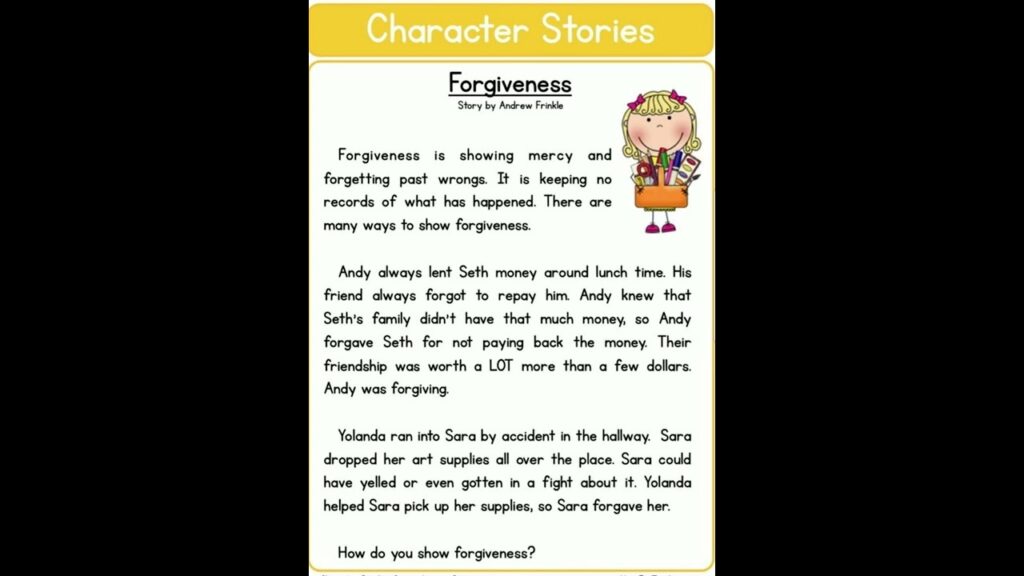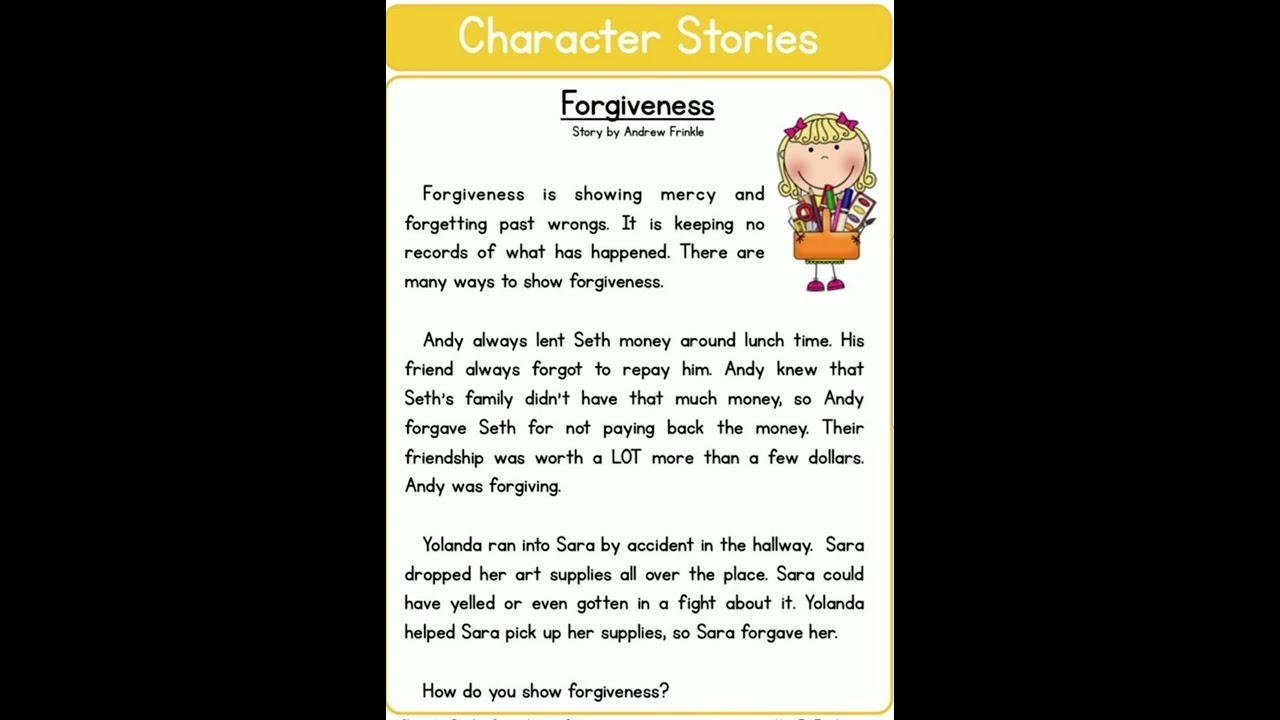
The Weight of Unspoken Words: A Short Story on Forgiveness
Forgiveness, a concept often discussed but rarely mastered, is the cornerstone of healing and reconciliation. This short story on forgiveness explores the complexities of holding onto resentment and the liberating power of letting go. It delves into the internal struggles and external pressures that shape our ability to forgive, offering a glimpse into the transformative journey of two estranged siblings. Through their experiences, we examine the profound impact forgiveness can have on our lives, relationships, and overall well-being. This narrative aims to illuminate the path towards understanding, empathy, and ultimately, forgiveness.
A Rift Forged in Childhood
The old house stood as a silent testament to years of unspoken grievances. Inside, two figures moved with the cautiousness of strangers navigating a minefield. Sarah, the elder sister, meticulously dusted a bookshelf, her movements precise and deliberate. Across the room, David, her younger brother, stared out the window, his gaze lost in the sprawling garden. A short story on forgiveness often begins with a deep-seated conflict, and theirs was no exception.
Their childhood had been idyllic, filled with laughter and shared adventures. But a single, pivotal event had shattered their bond. A careless mistake by David, resulting in a fire that damaged their father’s prized workshop, had irrevocably altered their relationship. Sarah, burdened by responsibility, had shouldered the blame and the subsequent consequences. David, consumed by guilt and fear, had retreated into silence. The unspoken resentment festered, creating a chasm that widened with each passing year. The need for forgiveness was apparent, but neither knew how to bridge the gap.
The Inheritance
Their father’s passing had forced them back together, the shared inheritance a reluctant catalyst for reconciliation. The house, filled with memories both cherished and painful, served as a constant reminder of their fractured past. As they sorted through their father’s belongings, old wounds were reopened, and the weight of unspoken words became almost unbearable. Sarah found a box filled with David’s childhood drawings, each one a testament to his artistic talent. David, in turn, discovered a letter from their father to Sarah, praising her strength and resilience. These discoveries, however, only served to deepen their guilt and regret. This short story on forgiveness highlights the power of shared history and its ability to both bind and divide.
The Confrontation
The tension finally reached its breaking point during a heated argument over the sale of the house. Sarah, hardened by years of resentment, accused David of abandoning her during their time of need. David, stung by her words, retorted with accusations of her controlling nature and inability to forgive. The air crackled with anger and frustration. “You never understood what it was like for me!” David exclaimed, his voice trembling. “I was just a kid! I didn’t know what to do!” Sarah, tears streaming down her face, responded, “And I was supposed to fix everything? I was just a kid too!” The need for forgiveness hung heavy in the air, a silent plea for understanding.
Unearthing the Truth
In the midst of their emotional outburst, a long-buried truth surfaced. David revealed that he had tried to confess to their father about the fire, but Sarah had stopped him, fearing the consequences. She had taken the blame to protect him. The revelation stunned both of them. Sarah realized that her resentment had been misdirected, fueled by a misunderstanding. David, in turn, understood the immense sacrifice his sister had made. The process of forgiveness often involves uncovering hidden truths and confronting uncomfortable realities. [See also: The Power of Empathy in Conflict Resolution]
The Path to Forgiveness
The truth, once revealed, began to chip away at the wall of resentment that had separated them for so long. Sarah, for the first time, saw the fear and guilt that had haunted David throughout his life. David, in turn, recognized the burden Sarah had carried with such unwavering strength. They began to talk, sharing their perspectives and acknowledging their individual pain. The conversation was difficult, filled with tears and apologies, but it was also cathartic. They started on the long and arduous path toward forgiveness. This short story on forgiveness emphasizes that the journey is not always easy, but it is always worth it.
The First Step
Sarah, her voice choked with emotion, offered a tentative apology. “I’m sorry, David,” she said. “I should have listened to you. I should have given you a chance to explain.” David, his eyes welling up with tears, responded, “I’m sorry too, Sarah. I should have been there for you. I should have told the truth.” The apologies were heartfelt, a genuine expression of remorse and a willingness to move forward. The initial act of offering and accepting an apology is crucial in the process of forgiveness.
Empathy and Understanding
As they continued to talk, they began to understand each other’s perspectives. Sarah realized that David’s silence had been a manifestation of his guilt and fear, not a deliberate act of abandonment. David understood that Sarah’s protective nature had stemmed from a deep sense of responsibility and a desire to shield him from harm. Empathy and understanding are essential components of forgiveness, allowing us to see beyond our own pain and recognize the humanity in others. [See also: Understanding the Psychology of Forgiveness]
A New Beginning
The process of forgiveness was not immediate or complete. It was a gradual and ongoing journey, requiring patience, understanding, and a willingness to let go of the past. But as they worked through their differences, they began to rediscover the bond that had once united them. They laughed, they cried, and they shared memories of happier times. The old house, once a symbol of their fractured past, began to feel like a home again. The short story on forgiveness concludes with a sense of hope and renewal, demonstrating the transformative power of letting go.
Letting Go of Resentment
Letting go of resentment is a crucial step in the process of forgiveness. Holding onto anger and bitterness only serves to harm ourselves, poisoning our minds and hearts. Forgiveness, on the other hand, allows us to release the negative emotions that bind us to the past, freeing us to move forward with a sense of peace and liberation. This short story on forgiveness aims to inspire readers to embrace the power of letting go and to find healing through understanding and empathy.
The Power of Reconciliation
In the end, Sarah and David were able to reconcile, not completely erasing the past, but learning to live with it and move forward together. Their relationship was forever changed, but it was also stronger and more resilient. They had learned the valuable lesson that forgiveness is not about condoning wrongdoing, but about freeing ourselves from the burden of resentment and embracing the possibility of a new beginning. The short story on forgiveness underscores the importance of reconciliation and the profound impact it can have on our lives and relationships. [See also: Practical Steps to Forgiving Someone Who Hurt You]
This short story on forgiveness serves as a reminder that even the deepest wounds can heal with time, understanding, and a willingness to let go. The path to forgiveness may be challenging, but the rewards are immeasurable. It offers a pathway to peace, reconciliation, and a renewed sense of hope for the future. The act of forgiveness, both for ourselves and for others, is essential for living a fulfilling and meaningful life. Embracing forgiveness allows us to break free from the chains of the past and create a brighter future. The characters in this short story on forgiveness illustrate the journey from resentment to understanding, highlighting the importance of empathy and open communication. The theme of forgiveness resonates throughout the narrative, demonstrating its power to transform lives and relationships. The siblings ultimately find solace and healing through forgiveness, showcasing its vital role in personal growth. The message of forgiveness is central to the story, emphasizing its transformative potential. The narrative explores the complexities of forgiveness, highlighting its challenges and rewards. Ultimately, the short story on forgiveness offers a hopeful message about the possibility of healing and reconciliation. The story emphasizes the importance of forgiveness in overcoming past hurts and building stronger relationships. It shows how forgiveness can lead to personal growth and a more peaceful existence. The journey to forgiveness, as depicted in this story, is a testament to the human capacity for empathy and understanding.

